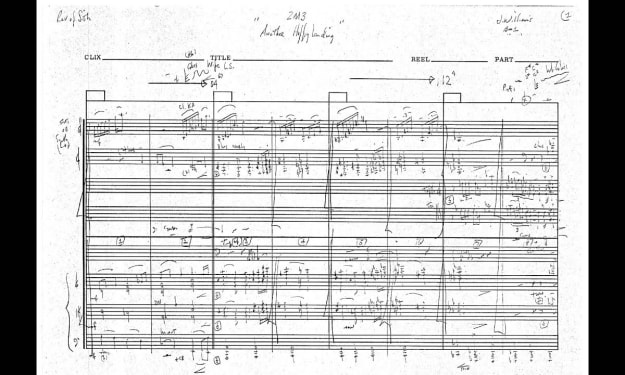What it's like playing in a professional orchestra.
From the experience of a specialist.

As a professional musician, making your way to a full time job in a symphony or philharmonic orchestra is not just the goal in life, but the dream. For the lucky 100 classical musicians of each major city across the globe who survive the seemingly endless rounds of auditions, they experience a life and career like no one else.
First things first are the rehearsals, as it is very rare for a professional orchestra to play something on stage in front of an audience before at least looking at it in a rehearsal. The rehearsal schedule differs between orchestras as it is decided by the musical director and the board. Usually it looks something like this: Tuesday (rehearsal (9am-3pm) with an hour break for lunch), Wednesday usually looks the same and Tuesday, Thursday (rehearsal (1pm-4pm) with a call time of 6pm for the show that night), Friday and Saturday usually look the same as Thursday, Sunday and Monday off except for the occasional extra concert here and there.
This time commitment may not seem like much considering some orchestral musicians make hundreds of thousands of dollars a year, however the musicians are getting paid for their time outside rehearsal as well. Equally important to rehearsal is the personal practice. Not only to players can individually improve to result in a better sounding orchestra but also so they can learn their parts before the first rehearsal as it is expected that every single musician can play their part absolutely perfectly even before the first rehearsal.
So once you spend a good dozen hours on the weekend perfecting your part for the next round of concerts after just having finished the pervious round, it's time to go to rehearsal. Well, what does that look like? Honestly, it's significantly more relaxed then you might think. We show up at 8 in plain comfortable clothes after having a coffee and morning chat with your section, make your way to your seat, and set up for the day. This includes everything from music, to instrument and auxiliary instrument if you double, as well as all your instrument accessories like slide grease or mutes or stands. For me as a double reed player, this means all my reed tools and cases as well as my oboe, english horn and sometimes my bass oboe. Now that everyone is set up and warmed up it is time to tune. That job is given to the principal oboe, that is sometimes myself, depending on which book I had been given for the upcoming concerts. The principal will play a concert "A" for each section and the conductor will be ready to begin. I should mention, tuning in a professional situation is nearly unnecessary as the musicians are so experienced they play in tune and adjust without having to tune prior.
The schedule of the rehearsal usually follows the schedule we were emailed the day before. This is so we know what to expect. However all rehearsals are different. It's incredibly program specific. In general however, they usually go something like this: 1. go through all of the awkward tempo changes and odd sections that are less intuitive (this includes cadenzas, some solos, some sections with odd time signature etc.), 2. a full sitzprobe or run-through of all the music on the program, 3. lunch time, where you just eat lunch and talk to your friends (being as immature as we are sometimes we can often relate our lunch time to that of a high school cafeteria), 4. after lunch, it's just a few hours of polishing and perfecting anything specific that needs improvement. That's all their is to it. Occasionally orchestra will work on multiple concert programmes at once, the rehearsals are still pretty similarly structured though.
Now that the boring rehearsals are out of the way, we can talk about the fun part witch is the concerts. This is the only time you will see an orchestra. On stage, at it's best, with everyone dressed up. Just remember for every concert there were many hours of rehearsal and individual practice.

At the call time of 6pm, usually, you are expected to be in the building but you really don't have much to do. Occasionally there will be an extra rehearsal from 6-7 if the music director decided it was necessary, but most of the time you just hang out and talk to your friends. Drink more coffee, nap in the green room. Your section mates and netlfix are your best friends in this time we call the "black hole hour". It's called this because it's never a productive time, and by the time the hour is up, you are always wondering where the time went.
After the "black hole hour" it's time to change an go on stage. The stage doors are open for the musicians only half an hour before the start time of a concert. Coincidentally thats the same time the house or audience doors are also open. During this time, you will see very few musicians on stage practicing some extra tricky sections. Slowly the whole orchestra will filter on. Somehow, no one is ever late.

Then, the lights will dim, the audience and orchestra will hush and the principal oboe will play that tuning note you hear before every concert. Again this is more traditional then practical as it isn’t necessary for the intonation of the players.
After the sections have had their turn tuning, the conductor, concert master and soloist will walk on depending on the orchestra and the program. The conductor waits for the applause to subside, then he will raise his baton, and the concert will begin.
From there, it's about getting from the beginning to the end in once piece while making the music as beautiful as possible. Afterwards you are rewarded with a great feeling as you step out into the night air, as well as many drinks with your section mates.
And then you do it all again. At least that's the experience of the full time players. For auxiliary specialists like myself, you only get called for the weeks you are needed. Because the instruments I specialize in aren't used in every concert, I only show up the weeks they need me. This is good and bad for a few reasons. The hours are less which is nice, and the pay per hour of work is more, as auxiliary specialists are harder to find and are in higher demand. It's not so favourable however because the schedule is very erratic and sometimes requires traveling to different cities for a week or two when you get called for another orchestra.
None the less, it is always fun, the people are always great friends and company, and the job is more fun then work.
To ask specific questions, contact me through my website.
Web: https://www.aidanmtaylor.com
About the Creator
Aidan Taylor
Professional musician based in Toronto, Canada.
I play in symphony/philharmonic orchestras and theatre pit orchestras for a living. I also write classical music for orchestra and music for film and media.
Web aidanmtaylor.com
IG aidanmctaylor






Comments
There are no comments for this story
Be the first to respond and start the conversation.